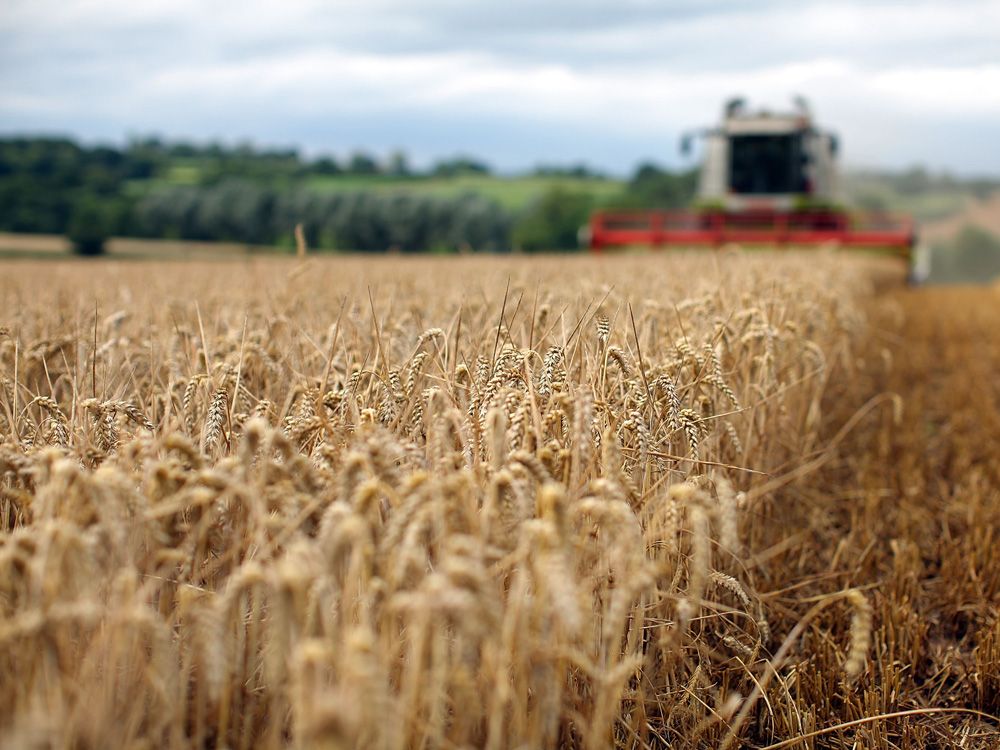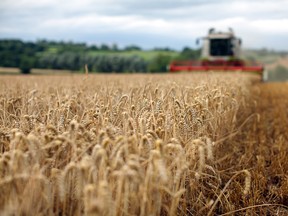Canadian farmers face volatility as war in Ukraine creates swings in global market for grains, oilseeds

‘The ground is shifting as we talk’

Article content
Brendan Phillips, a grain farmer in Hartney, Man., was watching wheat prices on Friday morning. The day before, futures prices had spiked amid fears that Russia’s invasion of Ukraine would disrupt one of the world’s most productive breadbaskets. But by Friday, wheat was falling.
Advertisement
Story continues below
This advertisement has not loaded yet, but your article continues below.
Article content
“The ground is shifting as we talk,” Phillips said.
The outbreak of war in Europe, and the ensuing volatility in the global commodities market, was giving him a feeling in his gut. He and his family already had decided what they were going plant across their 10,000 acres this spring, though technically there was still some time to change the mix if demand shot up for one crop or another.
Phillips’ gut feeling was to stick with the plan, to resist chasing wild trends in the market. The attack on Ukraine was a horrible thing, happening in a place that didn’t seem much different from his farm, judging from what they grow. And if the war was going to create uncertainty, best to stick with what you can grow well — which in his case means devoting half his fields to canola and soybeans, and the rest to hard red spring wheat, yellow peas and corn.
Advertisement
Story continues below
This advertisement has not loaded yet, but your article continues below.
Article content
“There’s only so many things we can control as farmers,” said Phillips, who serves as the vice-chair for the Grain Growers of Canada. “I have found personally it’s best to focus on what you’re good at.”
The invasion of Ukraine is threatening to disrupt the region’s exports, further tightening the global supply of commodities and driving up the pace of inflation. The crisis comes at a time at when global food stocks are already strained — party due to extreme weather, including drought in South American and last year’s drought that devastated crop production across Western Canada. And if food becomes even more scarce and expensive, it will have an adverse effect on developing nations that depend on Ukraine and Russia’s crops, said food industry Ted Bilyea, who serves as a distinguished fellow at the Canadian Agri-Food Policy Institute.
Advertisement
Story continues below
This advertisement has not loaded yet, but your article continues below.
Article content

“We’ve got lots of issues and we didn’t need this Ukraine thing. This is lunacy,” said Bilyea, a former Maple Leaf Foods executive who sits on the board of major grain buyer Paterson Global Foods Inc. “It’s tragic in the Ukraine, but it’s wider than that.”
Russia and Ukraine account for 29 per cent of the world’s wheat exports, and 19 per cent of corn exports, Reuters reported this week. The two countries are also major global exporters in corn, canola and sunflower oil.
But the invasion appears to be cutting off Ukraine’s exports from the rest of the world. In a presentation to the USDA’s Agriculture Outlook Forum, analyst Andrey Sizov noted that key Ukrainian export ports in the weren’t operating as of Friday morning. “I don’t think that any ship owners will risk sending their vessels to the region,” said Sizov, managing director of the Black Sea agricultural research firm SovEcon.
Advertisement
Story continues below
This advertisement has not loaded yet, but your article continues below.
Article content
The uncertainty drove up wheat futures at the Chicago Board of Trade, which hit a level not seen since 2008 on Thursday before falling on Friday, according to Reuters. Corn hit an eight-month high, then also fell Friday.
-

Ukraine war won’t stop Bank of Canada from hiking rates, but steep path unlikely
-

Liquor stores in Canada, including LCBO, pull Russian products from shelves
-

The gen-Xers running Canada just got a wakeup call from Putin
“We got into overbought territory on the charts and posted a big correction,” Karl Setzer, a market analyst with Agrivisor, told Reuters.
Jean-Philippe Gervais, chief economist at the federal agriculture lender Farm Credit Canada, said the price jump on Thursday was “typical overreacting from the markets” and suggested commodities prices could be a “roller coaster for the next few weeks.”
Advertisement
Story continues below
This advertisement has not loaded yet, but your article continues below.
Article content
Even if crop prices jump this year, agriculture leaders this week warned that the war will also drive up fuel and fertilizer costs, since natural gas is a main input in the production of fertilizer. And if higher inflation pushes central banks to get bolder with interest rates hikes, the cost of borrowing will go up. That’s concerning for a capital-intensive business like farming, where many operations depend on debt to finance land and equipment, said Gervais, chief economist at Farm Credit Canada, Canada’s largest agricultural term lender.
Farmers, especially in Western Canada, may be wary of locking in prices for their crops with buyers so early in the year. Last year, poor production volumes forced some farmers to pay out of pocket to buy crops on the open market as a way of covering their contractual obligations.
Todd Lewis, interim vice-president at the Canadian Agriculture Federation, said western farmers are banking on healthy rains to bounce back from last year’s drought. “I think a lot of producers are in a wait-and-see mode to see what the spring is going to look like,” he said.
• Email: jedmiston@postmedia.com | Twitter: jakeedmiston
Advertisement
Story continues below
This advertisement has not loaded yet, but your article continues below.








